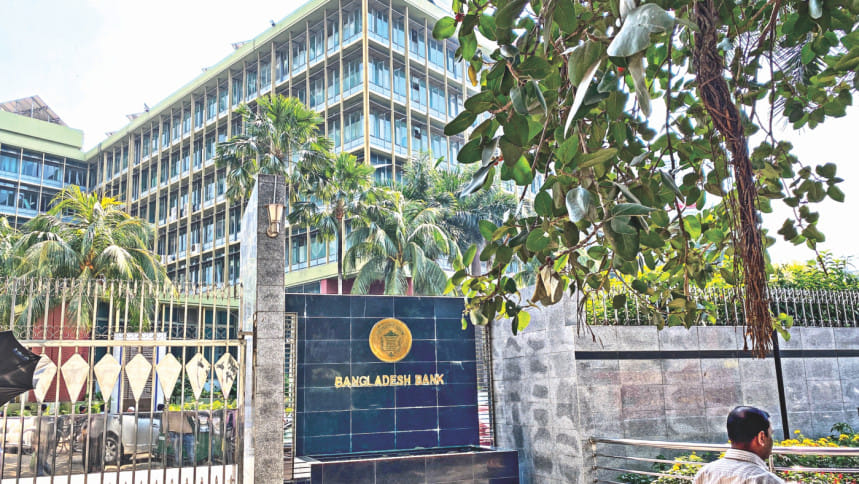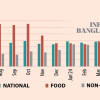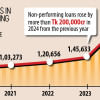Fixing the economy: BB drawing up roadmap to tackle 3 key challenges

Bangladesh Bank is preparing a roadmap for the next government to address the three major issues of exchange rate instability, high inflation and high defaulted loan ratio bearing upon the economy.
The development comes after a directive from Prime Minister Sheikh Hasina such that she can hit the ground running on addressing the key ailments of the economy should the Awami League get elected in the polls, due in January next year.
Addressing the three challenges identified by the BB would entail drastic measures and the current government is loath to rock the boat ahead of the elections, The Daily Star has learnt from central bank officials informed with the proceedings. They spoke on the condition of anonymity due to the sensitivity of the discussions.
The central bank is now holding meetings with economists to get their opinions on how to address the three challenges. The series started last month with noted economist Wahiduddin Mahmud. The BB will sit with Mohammed Farashuddin, a former central bank governor, and Zahid Hussain, a former lead economist of the World Bank's Dhaka office, this week.
On Monday, the BB sat with Selim Raihan, executive director of the think-tank SANEM.
Raihan told The Daily Star after the meeting that he asked the BB governor Abdur Rouf Talukder about the extent of political will in implementing the roadmap.
He cited the case of many banking sector reform measures that were undertaken but never followed through.
The government did not take any significant steps to control the spiralling classified loans and the irregularities in the financial sector.
"[BB officials] said there is a firm political commitment this time," said Raihan, also a professor at the University of Dhaka's economic department.
At the meetings with economists, Md Habibur Rahman, BB's chief economist, presents the current economic situation, the main challenges and the steps taken by BB to revive the economy.
Market syndicates, under-invoicing, over-invoicing, unethical business practices, wilful default culture and weak corporate governance are also to blame for the current fragile state of the economy, according to the central bank.
The roadmap will have measures such as a floating exchange rate, market-based interest rate and bringing down defaulted loans by way of good governance.
Hasina is serious about establishing good governance in the banking sector, the BB officials said.
All the problems in the economy began when the interest rate was capped in April 2020. Then the central bank extended loan moratoriums several times.
"Both were wrong decisions. The right policy was not taken at the right time, but the wrong policy was pursued," Raihan said.


 For all latest news, follow The Daily Star's Google News channel.
For all latest news, follow The Daily Star's Google News channel. 








Comments